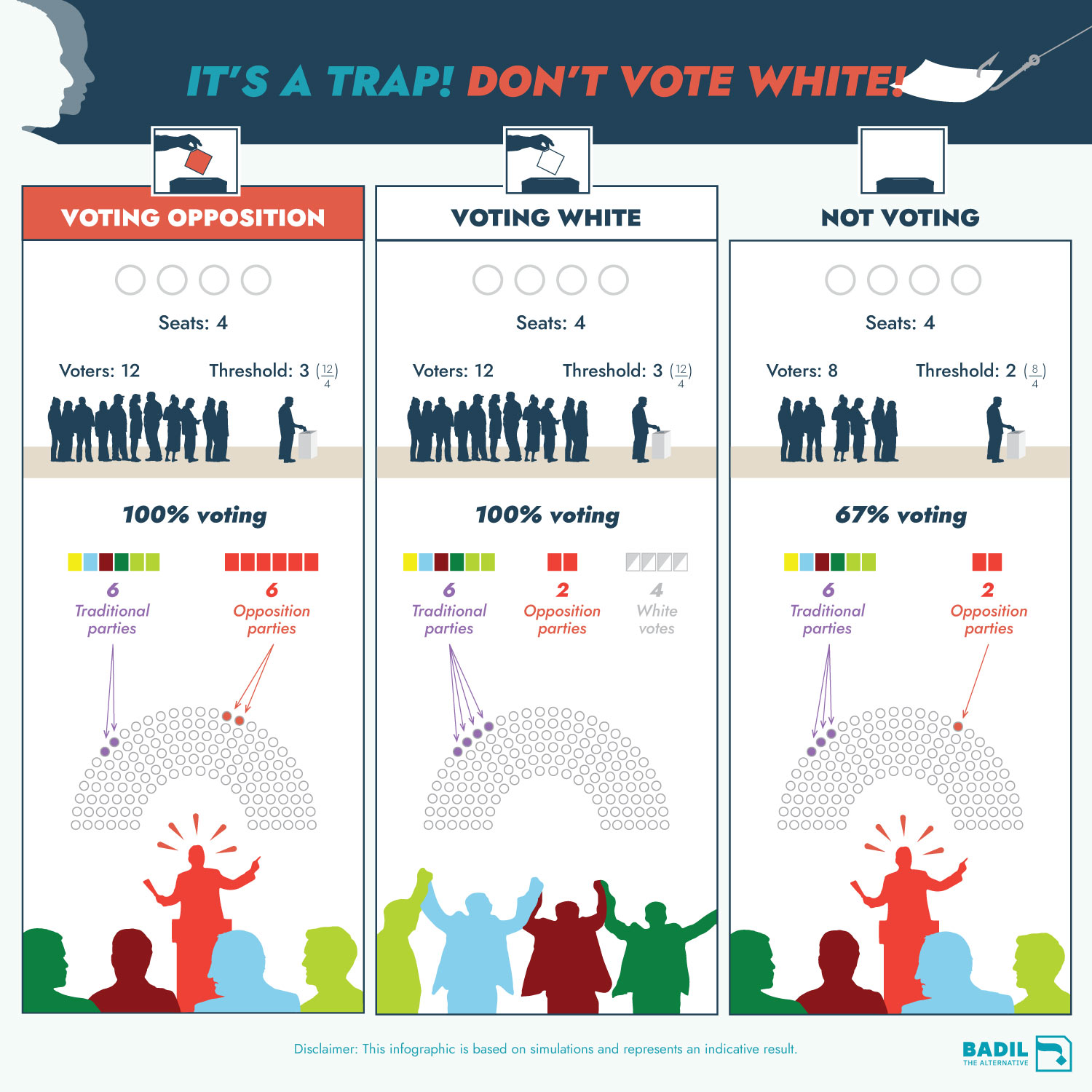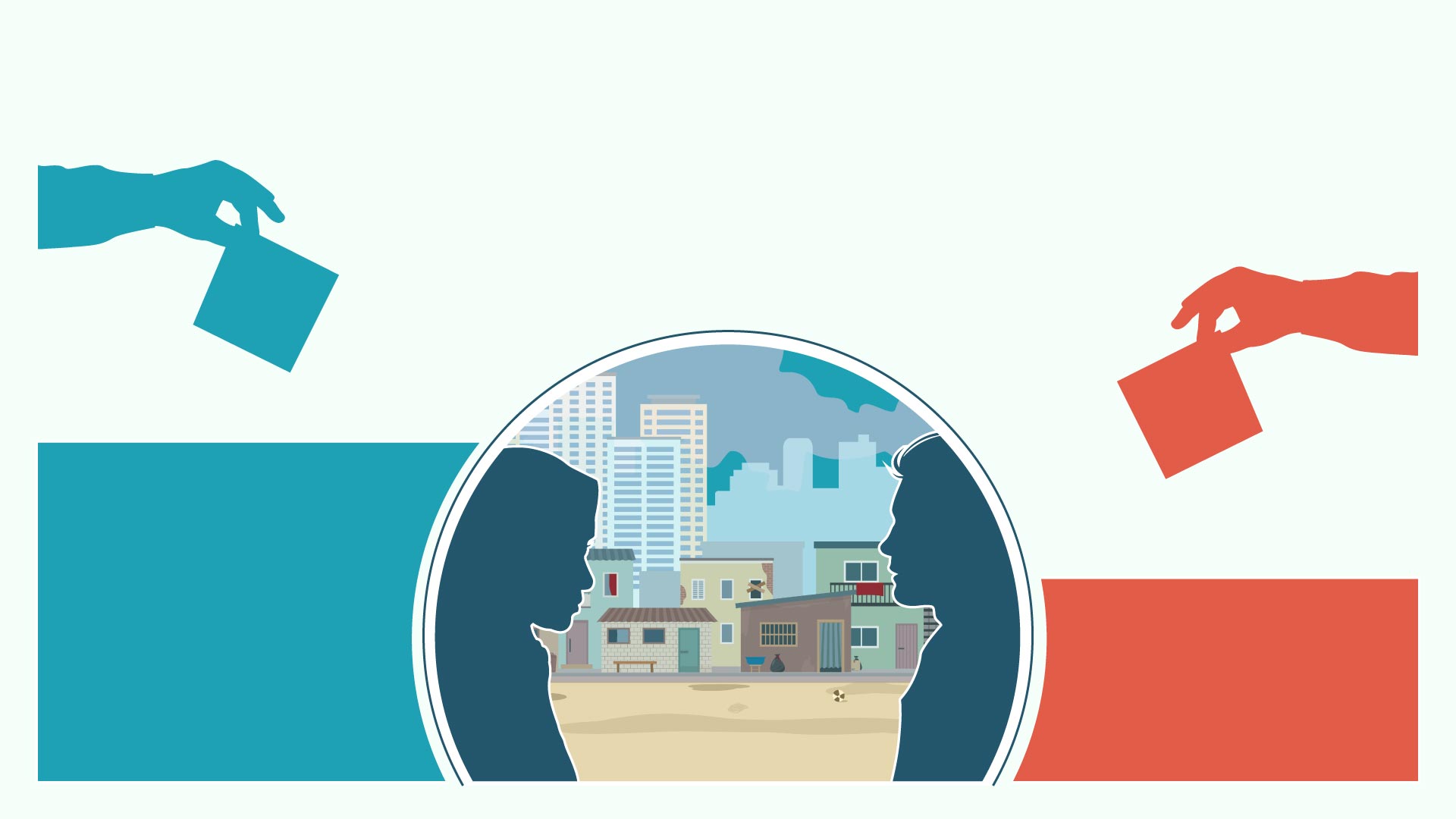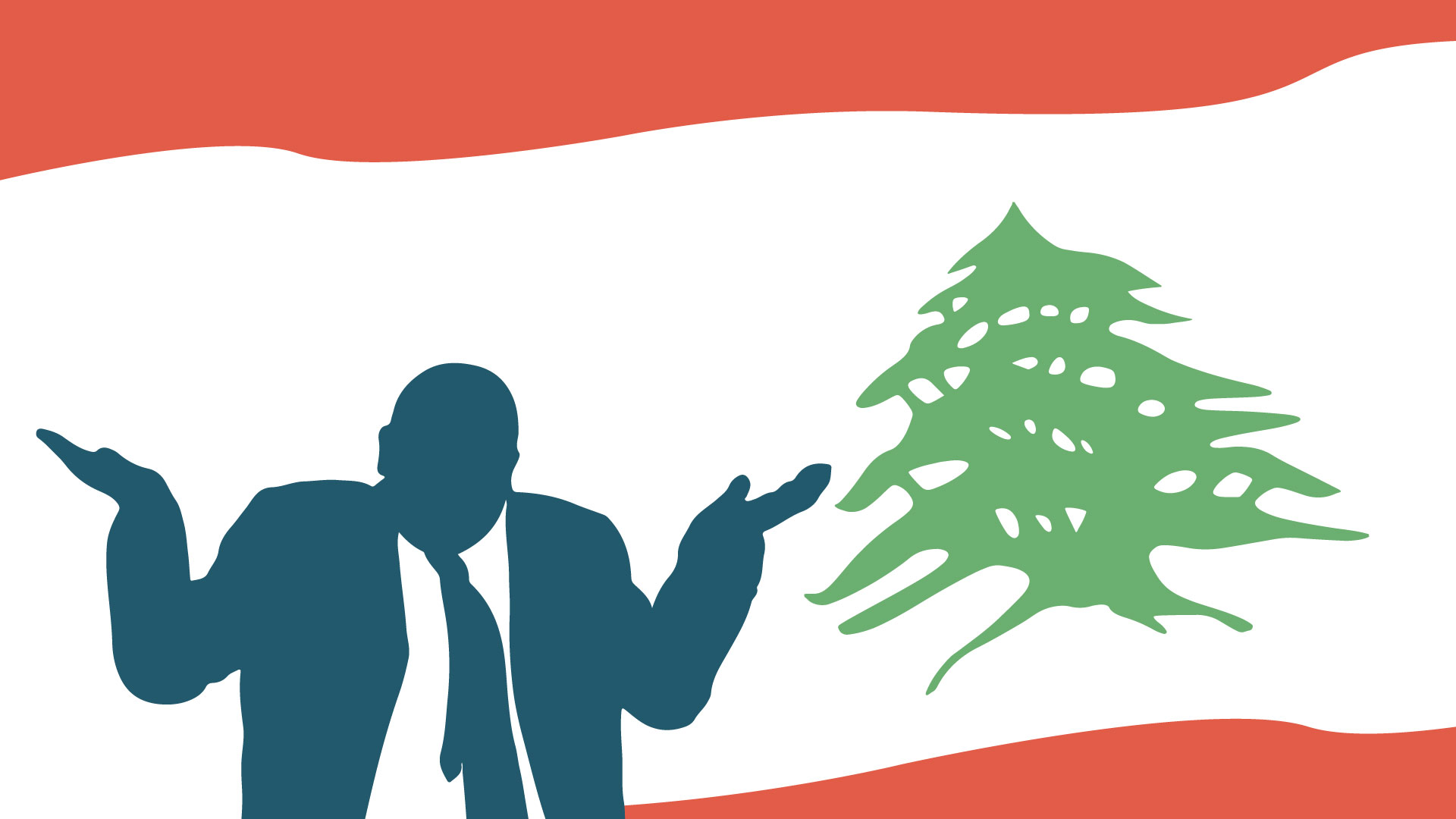Traditional Lebanese political parties are expected to win the majority of the seats in Sunday’s elections. The result should not come as a surprise when these established parties are the ones who created, modified and approved the current electoral law that serves their own best interests.
The “blank vote” which used to be a sign of protest against the political class in elections when this law didn’t apply (pre-2008), is now a tool for the political class to hedge disaffection with their inability to govern for anyone other than themselves.
A blank vote is now considered valid and counted among the total number of votes, according to the current electoral law.
On Sunday, the opposition is expected to get fewer votes than the traditional parties because their lists and alliances are more dispersed.
Voting should be done out of conscience and everyone should vote as they please. But those who see that none of the candidate lists represent them, beware not to vote blank.




